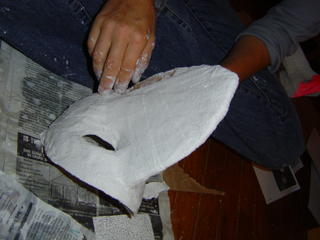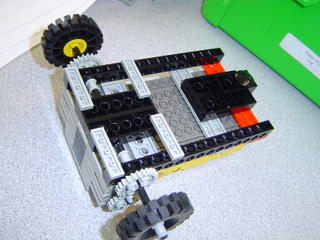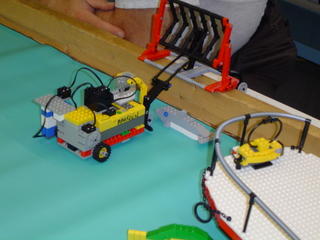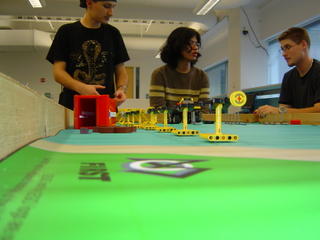then I started writing an email to Norm, who posted in the comments below, and I realized that I would eventually post here the same thing I was writing to him, so I might as well kill two birds with one stone and just post it here.
I think Norm slightly misrepresented my reasons for being on the fence... it's not just the seniority issue, although that is a part of it. His story
was heartfelt - I'm not coldhearted, I hear what you all are saying about people working for years and then losing their jobs. I wonder if there could be middle ground, like protection for people whose schools are closed/reorganized as a DOE decision, but not necessarily in other circumstances. For examples, what if all reorganization had to be done by a certain date, and then tenured teachers who lost their jobs would have access to the list of vacancies a month before everyone else, and could go through the interview process before the newer teachers or those choosing to leave their schools? Don't forget that I am thinking not just from the perspective of myself or of teachers, but of what is best for the children in my school, and in other schools, and I honestly do not believe an organization can function well when it has new employees transferring in without so much as an interview, just because they have taught for a long time somewhere else.
The other teachers I've talked to at my school share the same concerns I do about seniority transfers. I was the one who pointed out that older/more experienced teachers cost more, and might have a harder time getting jobs as a result. At least one teacher said that was a good point that she hadn't considered before.
But it's not just that, there are other issues I'm on the fence about - as you can tell from my earlier posts, I am not enthusiastic about the 37 odd minutes, and I have a lot of questions about how it will be implemented at all levels (see, it's not always just about me!), most of which remain unsatisfactorily answered.
Teachers have been talking a bit in my school. The tide of opinion at the moment is to vote for the contract because they don't believe the union is strong enough to win a strike, and because they don't believe we'll get a better offer without striking (or at least the credible threat of a strike). My (admittedly minimal) understanding of labor history is that unions are supposed to help their members deal with survival finances in the event of a strike, and I suspect our union would be hard-pressed to help us pay our rent and other bills in the event of a strike of more than a couple of days. I may not have a mortgage or childcare to pay, but I have Manhattan rent and student loans, and I wouldn't last too long losing two days pay for every day of a strike. And I think Bloomberg would just sit us out. Also, the public hears "15% raise" - they are going to think we're jerks for rejecting that and even bigger jerks if we then walk out of our schools. This assessment of the politics of the situation may be right or wrong, but it's the perception among the people I work with, and I will admit to sharing most of it.
All of which is to say, when I say I'm on the fence, I really mean I'm on the fence, and for many reasons. It's not a single-issue decision.
*****
And a word to the wise, and this is an equal-opportunity piece of advice: the people I work with are convinced by reasoned arguments and facts supported by data, not by the use of all caps, not by name-calling, not by factionalism. Stick to the issues and you'll receive a fair hearing. I mean that here, of course, but also at other blogs, both in posts and in comments.
Another word to the wise: the young, enthusiastic, committed teacher who is the union rep from my school told me that at the last meeting she attended, another rep stood up and made a dismissive comment about schools bringing in more "bubbly blond" young teachers to replace the more experienced teachers. That is not exactly the kind of inclusive language that will make committed union members of those of us who are young, enthusiastic, and not necessarily planning to leave the profession any time soon.*
*****
And now for today's questions:
1. I've seen the argument that back in 1995, a better offer followed the union's rejection of the proposed contract. Now is not 1995. What are the likely scenarios following a rejection? If Weingarten resigns, who is likely to take over leadership of the UFT, and what are their priorities? What evidence do you have that the city would buckle under and offer us a better deal as they did in '95? What would a strike be like if it came to that? etc., etc.
2. Still looking for more information about the 37 1/2 minutes, and how it will be implemented.
3. A more general question about teacher's unions. Why isn't better maternity leave a higher priority, so that teachers like
posthipchick don't find themselves wondering how the heck they can afford to be pregnant? Teaching is still a majority female career; you'd think this would be a bigger deal...? Am I missing something here?
4. Another general question. It seems like the contract debate is rife with concerns about micromanagement and poor behavior on the part of some (many?) principals within our system. I don't like being reactionary and defensive, yet the fact that these poor managers not only exist but apparently keep their jobs forces us to be that way. Why aren't they being held accountable for these kinds of abuses of power? And not by our union, but by the city? How can there be this much anecdotal evidence about crazy principals and no action taken to remove these people? And where are better leaders going to come from?
*I'm in my sixth year. I realize that's not 30, but could we stop questioning my commitment, already? They told me in high school that people from my generation would have 7 completely separate careers in our lifetimes. I will stay at my school for as long as it is an intellectual challenge, a pleasant place to work, a place where I feel I can grow, and assuming that no other major life events intervene. If & when things change for the worse, I will look very, very carefully for another good school, inside or outside the NYC system. There are certain foreseeable life events that would make me at least consider applying for commercial curriculum writing positions or other jobs where I could work at least partly at home.
















